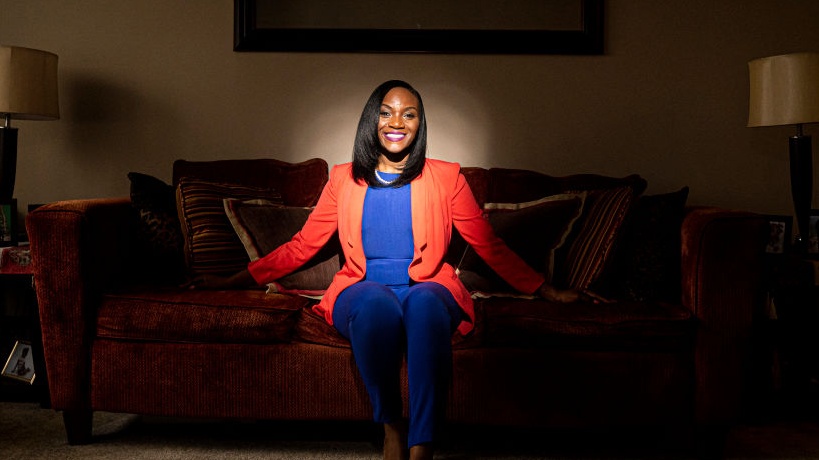Dr. Kizzmekia Corbett, one of the National Institutes of Health’s (NIH) lead scientists, is joining Harvard T.H. Chan School of Public Health as an assistant professor, the university announced.
Corbett is most widely known for playing an integral role in the development of Moderna’s coronavirus vaccine, which has proven to be up to 94.1% effective, according to the CDC.
“I am delighted to welcome Kizzmekia to the School. Working in public health is a calling, and I am proud to work each day supporting an amazing team of researchers who have devoted their professional lives to helping others live full, happy, and healthy lives,” Michelle Williams, dean of the faculty at Harvard Chan School and angelopoulos professor in public health and international development, said.
“Kizzmekia is a natural fit here. Her success in the lab is matched only by her commitment to using science to improve people’s lives, especially for communities that have too often been left behind by advances in health care,” she added.
As a professor in the Department of Immunology and Infectious Diseases, Corbett is spearheading the new Coronaviruses & Other Relevant Emerging Infectious Diseases (CoreID) Lab to study and understand the correlation between hosts’ immune systems and viruses that cause respiratory illness. Her goal is to create novel and potentially universal vaccines.
“Vaccines are the great equalizer when it comes to addressing health disparities, especially around infectious diseases," Corbett said. “Harvard Chan School is at the forefront of advancing health equity, and I’m excited to join such distinguished colleagues in my pursuit of viral immunology research and vaccine development.”
Corbett, a postdoctoral fellow at the National Institute of Allergy and Infectious Diseases (NIAID) Vaccine Research Center, was also named a Shutzer assistant professor at Harvard’s Radcliffe Institute.
I'm additionally so excited to be appointed as a Shutzer Assistant Professor @ Harvard's @RadInstitute for Advanced Study. I'm bursting in excitement to be embedded into a community of scholars whose work exemplifies interdisciplinary exploration. https://t.co/7O7CfORxp9
— KizzyPhD (@KizzyPhD) May 11, 2021
“Kizzmekia is an inspiring scientist who—though still early in her career—has already had an incredible impact. Her work is helping to reshape our world and is saving lives on a vast scale,” Harvard Radcliffe Institute Dean Tomiko Brown-Nagin said.
Though Corbett is only six years into her career, she’s been excelling since childhood. Her fourth-grade teacher noticed her intelligence and as a high school sophomore, she was recommended for Project SEED, a program for gifted minorities that allowed her to study chemistry in labs at the University of North Carolina at Chapel Hill.
For college, Corbett was granted a scholarship catered to minority science students which covered her tuition costs at the University of Maryland Baltimore County. Ultimately, her undergraduate studies in biological sciences and sociology led her to a summer internship at the NIH, according to The Washington Post.
With the emergence of the coronavirus pandemic in 2020, the 34-year-old’s skills were put to the test as she and her team were told to “buckle up.”
“What my lab will do is we’ll study basic fundamental viral immunology, and hopefully inform vaccine development in those fields,” she said in a Harvard interview. “So that if there is ever another pandemic, that we can be one of the laboratories that helps us as a world get ready for it.”
As a Black woman, Corbett has also been a fierce critic of the lack of diversity among former President Donald Trump’s task force, which was largely composed of white men.
"I felt like it was necessary to be seen and to not be a hidden figure so to speak," Corbett said, referring to an event with Trump at the NIH last March, ABC News reports. "I felt that it was important to do that because the level of visibility that it would have to younger scientists and also to people of color who have often worked behind the scenes and essentially [who have] done the dirty work for these large efforts toward a vaccine."
As her vaccine development research continues, Corbett knows that the potential for scientific breakthroughs is boundless.
“If the last year has taught me anything, it’s that anything is possible,” she said.
